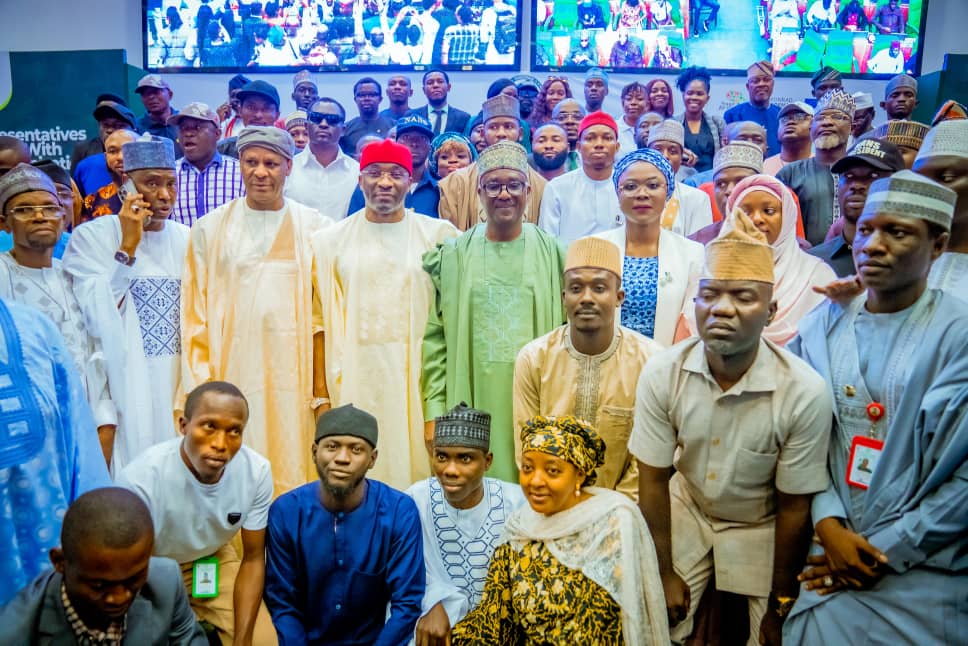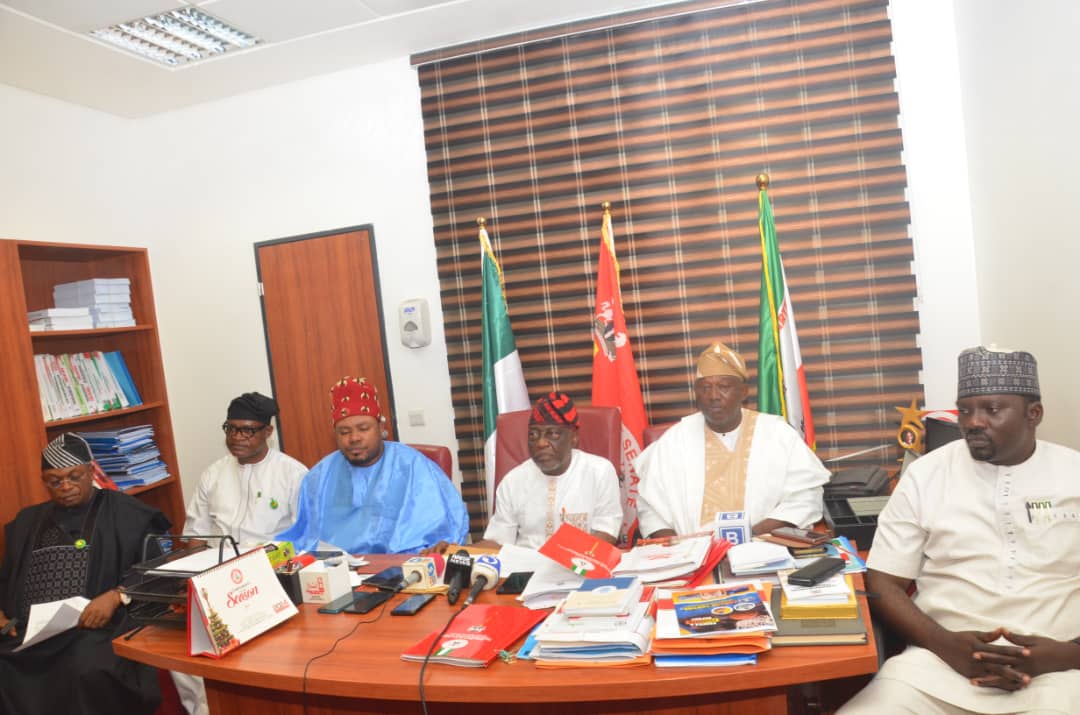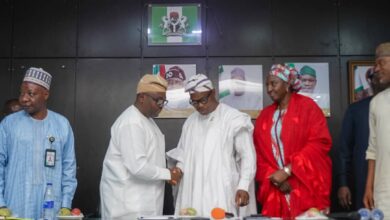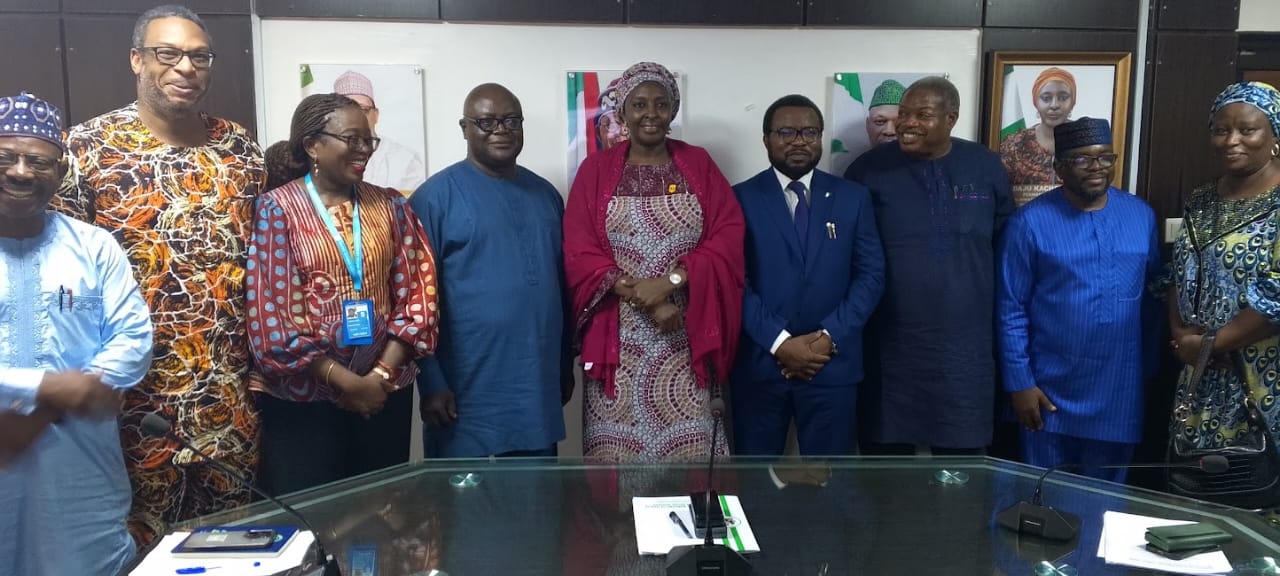FG to Integrate Biotech Innovations into Nigeria Healthcare Sector, to Advance Public Health, Societal Values
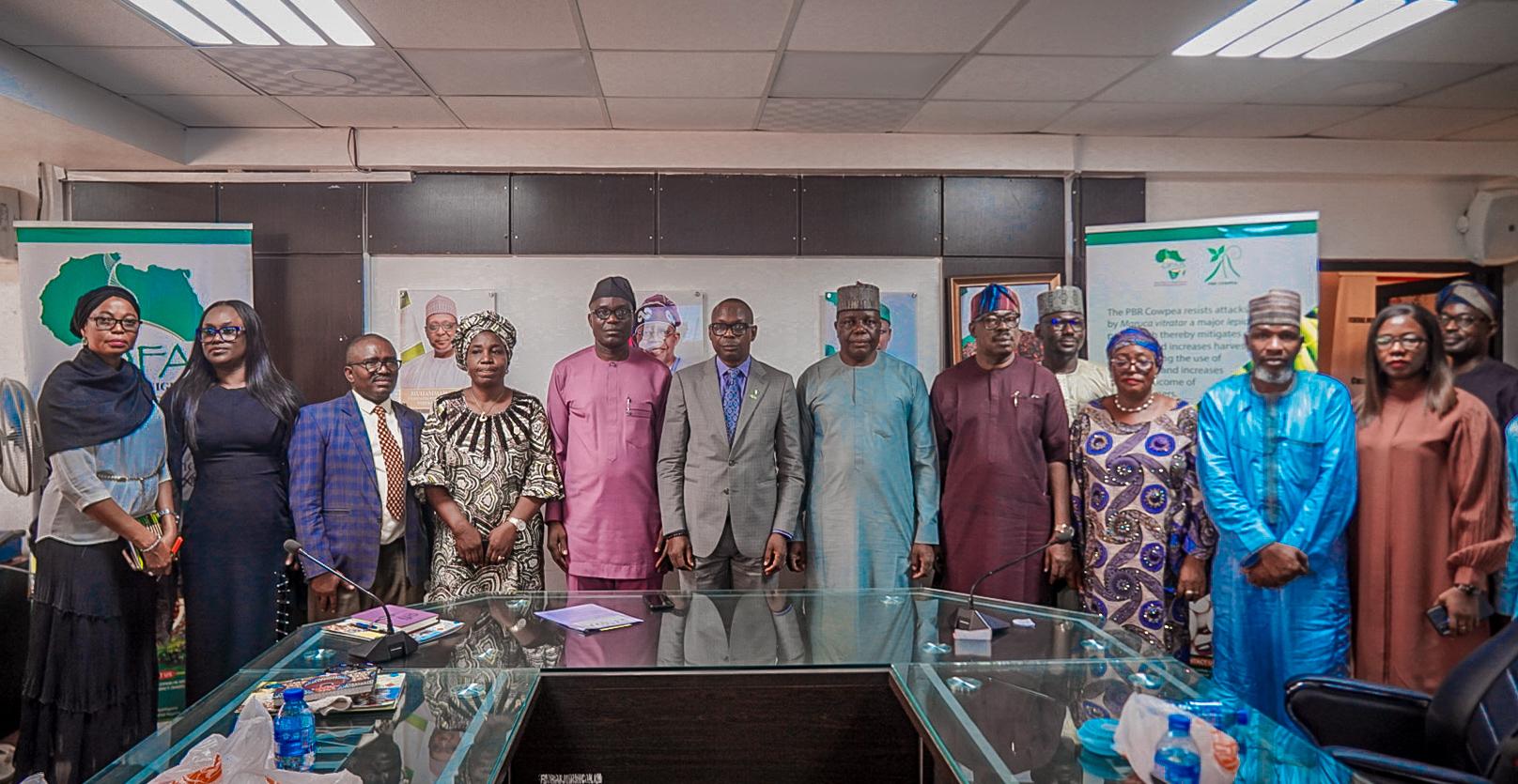
….Urges NBRDA on Bold GMO Public Awareness
By Fatima Saka
The Federal Government has reiterated its commitment to fostering an ecosystem where biotechnology-driven innovations flourish under strict safety and ethical standards, as part of efforts to transform Nigeria’s healthcare landscape.
Minister of State for Health, Dr. Iziaq Adekunle Salako, made this assertion during a sensitization workshop organized in collaboration with the Open Forum on Agricultural Biotechnology (OFAB) in Africa Nigeria Chapter and the National Biotechnology Research and Development Agency (NBRDA) on Tuesday in Abuja.
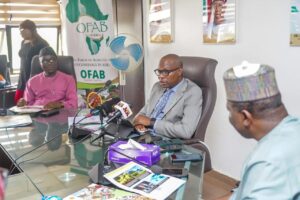
Dr. Salako emphasized the importance of a science-based approach to healthcare reforms, advocating for policies driven by empirical evidence rather than commercial or political interests.
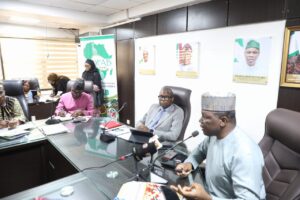
“We must foster open, transparent dialogue among researchers, industry leaders, policymakers, and communities,” he said. “This collaboration ensures that biotechnology aligns with societal values and responds to Nigeria’s unique needs, especially in areas like food security and public health.”
Addressing GMO Misconceptions
Speaking on the public apprehension surrounding Genetically Modified Organisms (GMOs), Dr. Salako criticized the spread of misinformation, calling for discourse rooted in peer-reviewed scientific research.
“Claims linking GMOs to cancer or other illnesses must be substantiated by rigorous, peer-reviewed evidence,” he stressed. “Scientific discourse cannot be built on internet speculation. Over 2,000 credible studies, including evaluations by the U.S. National Academy of Sciences, have confirmed that GMO foods are as safe as conventional foods—if not safer.”
He cited the consensus among global scientific bodies, including 275 independent organizations and over 100 Nobel Laureates, affirming the safety and potential health benefits of GMOs.
Dr. Salako also urged agencies like the NBRDA and NAFDAC to intensify efforts on GMO labeling to ensure consumer transparency and informed choice.
“People have a right to know what they’re consuming. Proper labeling of GMOs is essential. That responsibility rests with agencies like NBRDA and NAFDAC,” he said.
Biotechnology as a Driver of National Development
In his presentation, Prof. Abdullahi Mustapha, Director-General/CEO of NBRDA, highlighted the agency’s strategic role in national development since 2001, particularly in agricultural, environmental, medical, and industrial biotechnology.
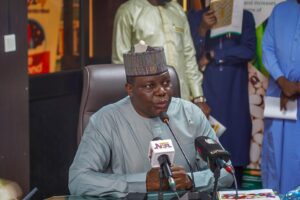
“Without innovation-driven technology, Nigeria cannot move forward,” Prof. Mustapha said. “Biotechnology offers solutions—from improving crop yield and resilience to enhancing diagnostics and therapeutics.”
He described biotechnology as a technique that transfers desirable traits via genes from one organism to another to improve quality and performance. This process, he noted, forms the backbone of modern medicine and agriculture and has become a multi-billion-dollar global industry.
“GMOs are not just scientific products; they represent hope and resilience,” he added. “We are committed to making Nigeria a global player in biotechnology.”
Prof. Mustapha also spoke about efforts to produce sufficient genetically enhanced seeds to meet farmers’ demand and reduce maize imports, thereby boosting national income through exports.
Ensuring GMO Safety and Public Confidence
Dr. Rufus Ebegba, a biosafety expert, emphasized the rigorous risk assessment protocols required for GMO approvals, including allergenicity, chemical composition, and substantial equivalence to conventional crops.
“GMOs are not synthetic chemicals. They are living organisms whose DNA has been modified to solve specific problems,” he explained. “International bodies like the FAO and WHO recognize their safety.”
Making Biotechnology Accessible to Farmers and Citizens
Professor Lawan Mohammadu, Head of Plant Science at the Institute for Agricultural Research (IAR), Ahmadu Bello University, Zaria, stressed the role of biotechnology in addressing climate challenges and improving crop yields.
“With early cessation of rainfall affecting crop maturity, biotechnology shortens breeding time while enhancing precision and quality. What once took a decade can now be achieved in under five years,” he said.
Ensuring Regulatory Oversight and Transparency
In her remarks, Pharm. (Mrs.) Olubunmi Aribeana, Director of Food and Drug Services (represented by Mr. John Atanda), acknowledged public skepticism fueled by sensational media coverage but assured the public of stringent regulatory oversight.
READ ALSO: President Tinubu Mourns Pope Francis: “A Voice for Justice, A Shepherd of Peace”
“All GMO products must meet rigorous safety standards, including assessments on nutrition, long-term health, and environmental impact,” she said. “We are working with agencies like NAFDAC, NBRDA, and NBMA to ensure labeling and traceability are enforced.”
Commitment to Progress
Dr. Rose Gidadob, Director of Agricultural Biotechnology at NBRDA, expressed appreciation to participants and reaffirmed the agency’s dedication to promoting biotechnology and biosafety in Nigeria.
“This workshop marks a significant step toward building a healthier and more sustainable future through science and innovation,” she said.

